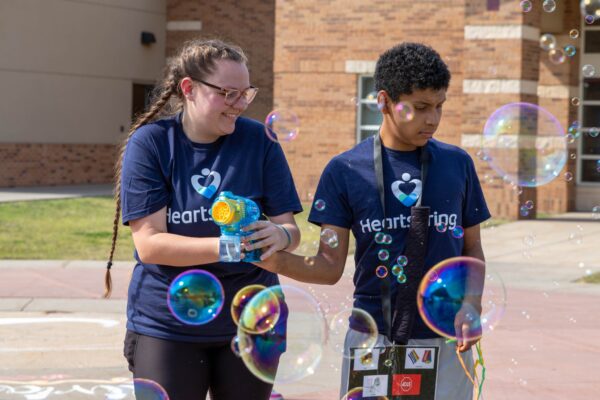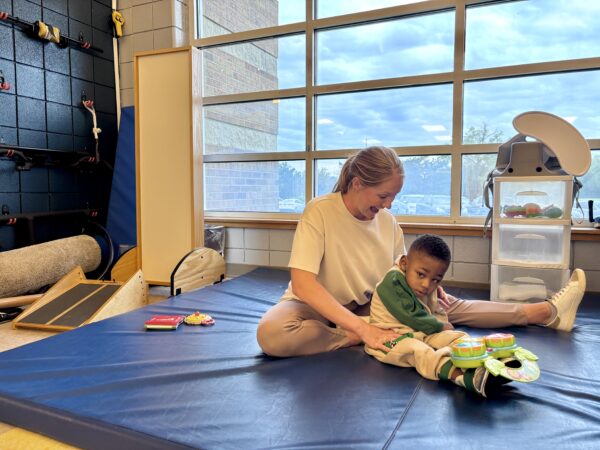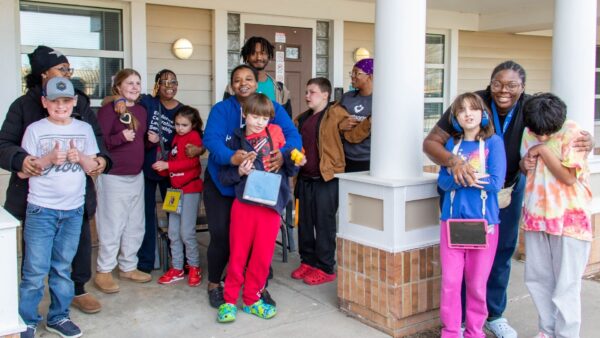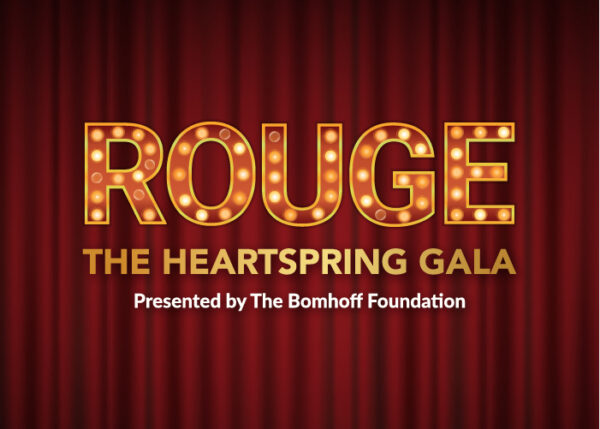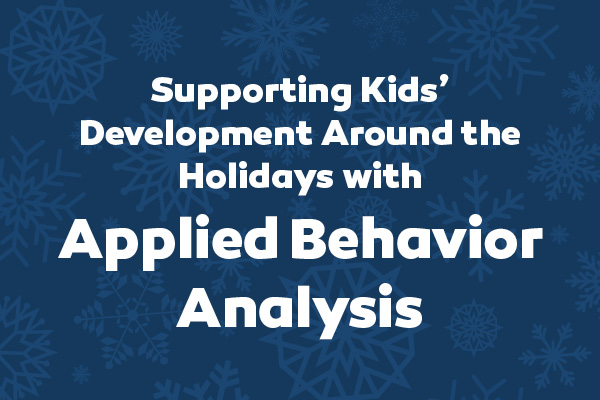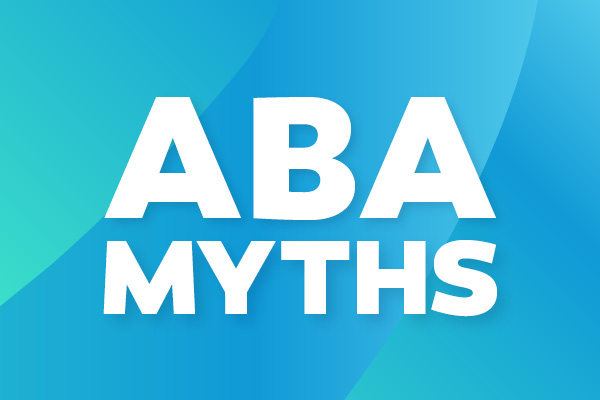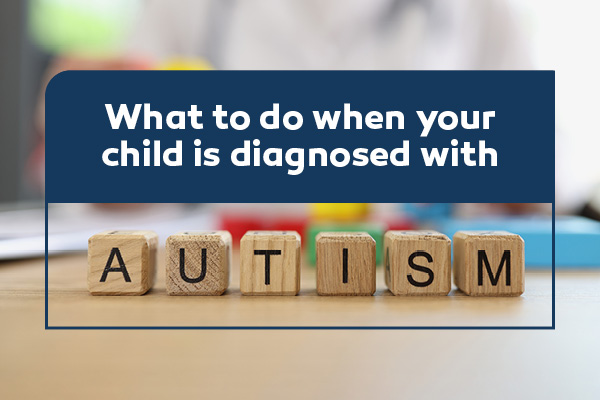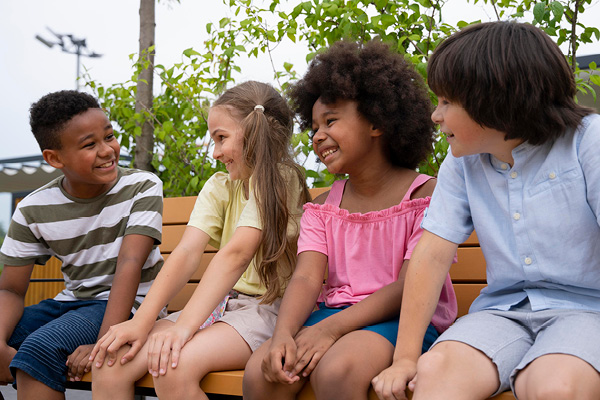Pediatric Therapies
Applied Behavior Analysis (ABA)
Evidence-based, individualized treatments to reduce interfering behaviors and develop critical interaction skills.
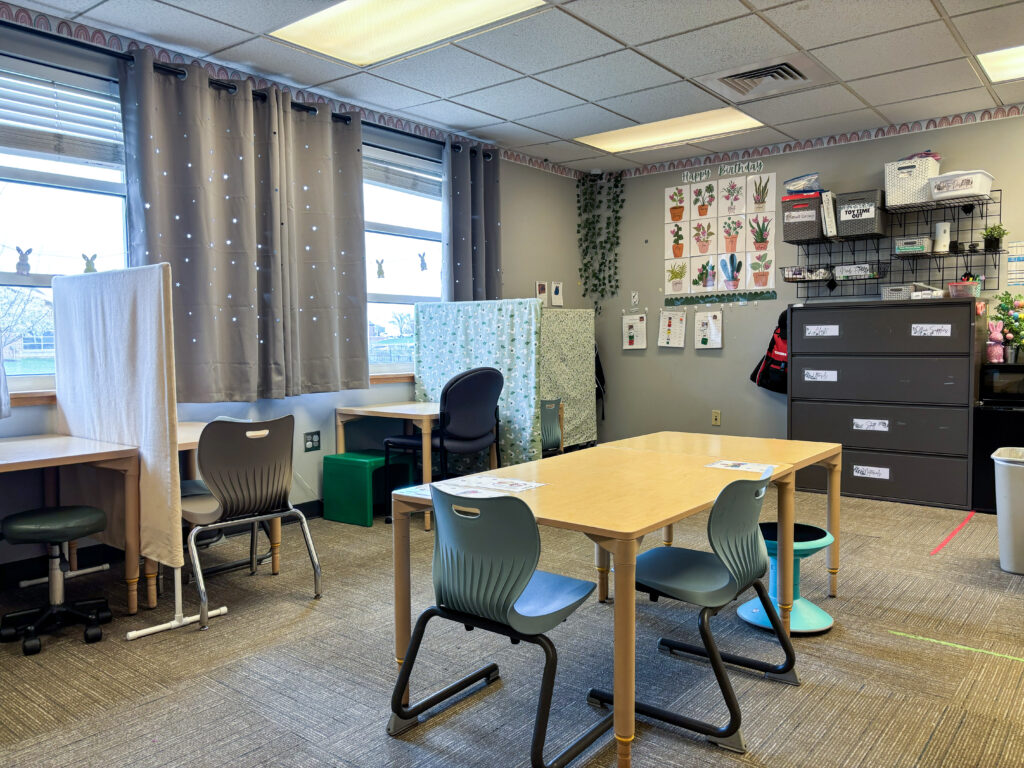
In Heartspring’s Outpatient Clinic, our ABA program offers evidence-based, personalized treatment plans designed to meet your child’s unique needs. Whether your child is struggling with communicating their needs, social engagement, or daily living skills, our goal is to reduce behaviors that interfere with learning and growth while nurturing essential interaction and life skills that lead to greater independence and confidence.
What is Applied Behavior Analysis?
Applied Behavior Analysis (ABA) is a scientific, evidence-based approach to understanding behavior and how it is affected by the environment. At its core, ABA focuses on identifying meaningful goals for each child and teaching new skills through positive reinforcement, structured support, and consistent practice. It is widely recognized as one of the most effective treatments for children with autism and other developmental delays.
At Heartspring, we work hand-in-hand with families to build customized therapy plans that help reduce challenging behaviors, increase communication, and promote meaningful social connections. Every step is guided by your child’s strengths, needs, and progress, ensuring treatment is as engaging as it is effective.
Our BCBAs help children:
Improve Social and Communication Skills
ABA helps children learn how to express their needs, engage with others, and build meaningful relationships. These skills are essential for success at home, in school, and in the community.
Reduce Challenging Behaviors
Through understanding the root causes of behaviors, ABA teaches safer, more effective ways for children to communicate and cope, helping to create a more peaceful and supportive daily routine for the whole family.
Increase Independence
From self-care to problem-solving, ABA empowers children to master everyday tasks so they can participate more fully and confidently in their world with less reliance on additional support.
Promote Generalization and Maintenance of Skills
Skills learned in therapy are practiced across different settings, people, and situations to ensure long-term success, so progress made in the clinic carries over into real life, where it matters most.
Heartspring Applied Behavior Analysis Strategies
Our team of behavior specialists individualizes behavior plans for every child’s unique needs. The following list represents a few of the core strategies we implement with the children in our care.
Comprehensive Behavioral Treatment
This approach addresses multiple areas of a child’s development through a carefully designed, individualized therapy plan tailored to long-term success.
Functional Communication Training
Teaches children to use appropriate, effective ways to express their needs and emotions, reducing frustration and replacing challenging behaviors with meaningful communication.
Modeling
By demonstrating positive behaviors, such as sharing, asking for help, or making eye contact, our team gives children clear, real-life examples they can watch, copy, and practice with support.
Naturalistic Teaching
Learning happens during everyday routines and play, making therapy feel fun and engaging while helping children apply new skills in familiar, meaningful settings like home or school.
Peer-Based Instruction and Intervention
Children practice social and communication skills by interacting with peers in guided settings, helping them build friendships, confidence, and cooperation through real-time learning experiences.
Self-Management
This strategy helps children recognize their own behaviors and make choices independently, building autonomy and lifelong problem-solving skills.
Visual Supports
From picture schedules to choice boards, visual tools help children better understand expectations, routines, and communication — making the world more predictable and easier to navigate.
Our ABA Team
Heartspring’s Pediatric Clinic ABA team consists of board certified behavior analysts, certified autism specialists, ABA program coordinators, and registered behavior technicians. BCBAs and certified autism specialists create behavior plans, and program coordinators and RBTs help implement the programming.
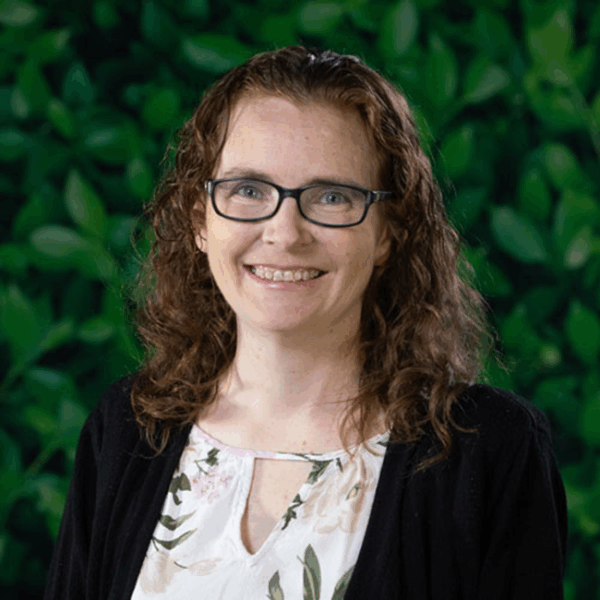
Dr. Betsy Thompson, Ph.D., MS, BCBA
Applied Behavior Analysis Clinical Director

Jerod Cooper, MA
Certified Autism Specialist

Kristen Hogg, MA, BCBA
Board Certified Behavior Analyst
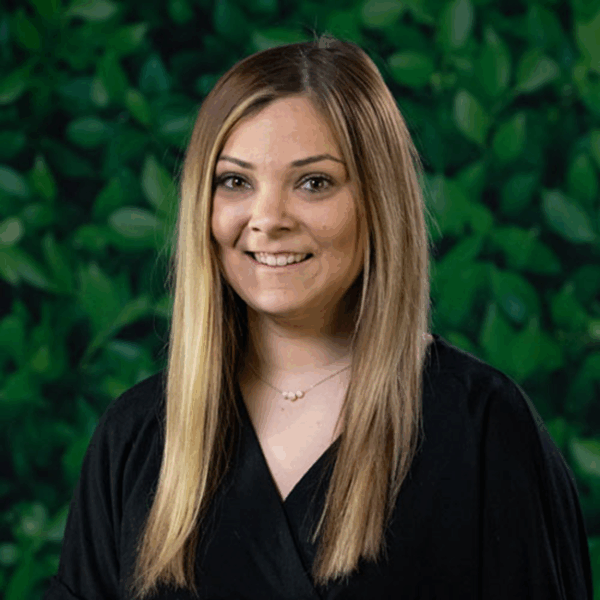
Angela McGuire, MA
Certified Autism Specialist

Katelyn Minks, MA, BCBA
Board Certified Behavior Analyst
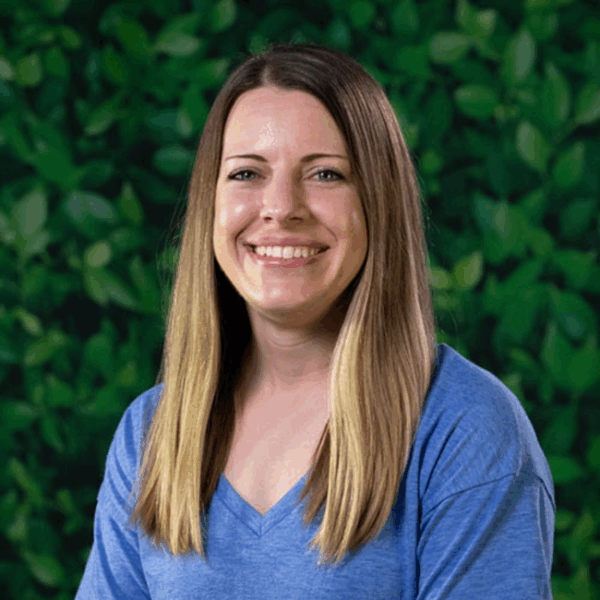
Mary Urton, MS, BCBA
Board Certified Behavior Analyst

Ethan Young, MA, BCBA
Board Certified Behavior Analyst
Request ABA Services
We provide in-person and telehealth ABA services in the state of Kansas, primarily in Wichita and the surrounding metro area.
More services
Program for the Education and Enrichment of Relational Skills (PEERS®)
PEERS
The original program is geared toward middle and high school students.
Some of the topics we discuss are:
- How to use appropriate conversation skills
- Joining a conversation
- How to find common interests with a peer
- Using appropriate humor
- Handling rejection, teasing, and bullying
Introduction to PEERS
This PEERS group is designed to help 4th and 5th graders transition from elementary to middle school.
Different topics each week, including:
- Conversation skills
- How to find common interests with a peer
- Good sportsmanship
- Handling rejection, teasing, and bullying
Preschool PEERS
Children aged 4-6 years old learn social skills through didactic lessons, puppet shows, and role-play demonstrations, and practice these skills during group socialization activities.
Participants will learn about:
- Listening and following directions
- Asking and using names
- Sharing and giving turns
- And more!
Applied Behavior Analysis (ABA) Resources
